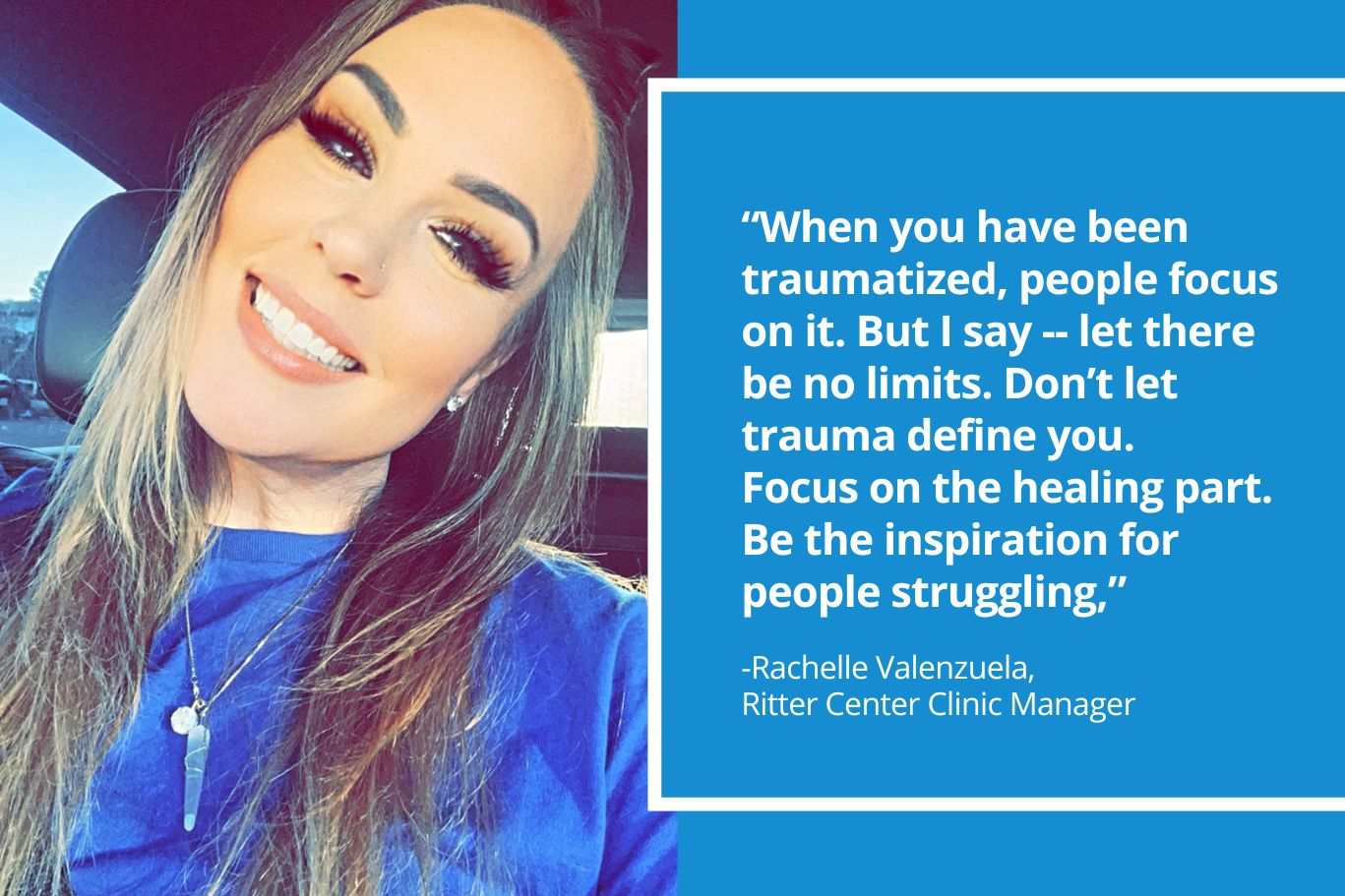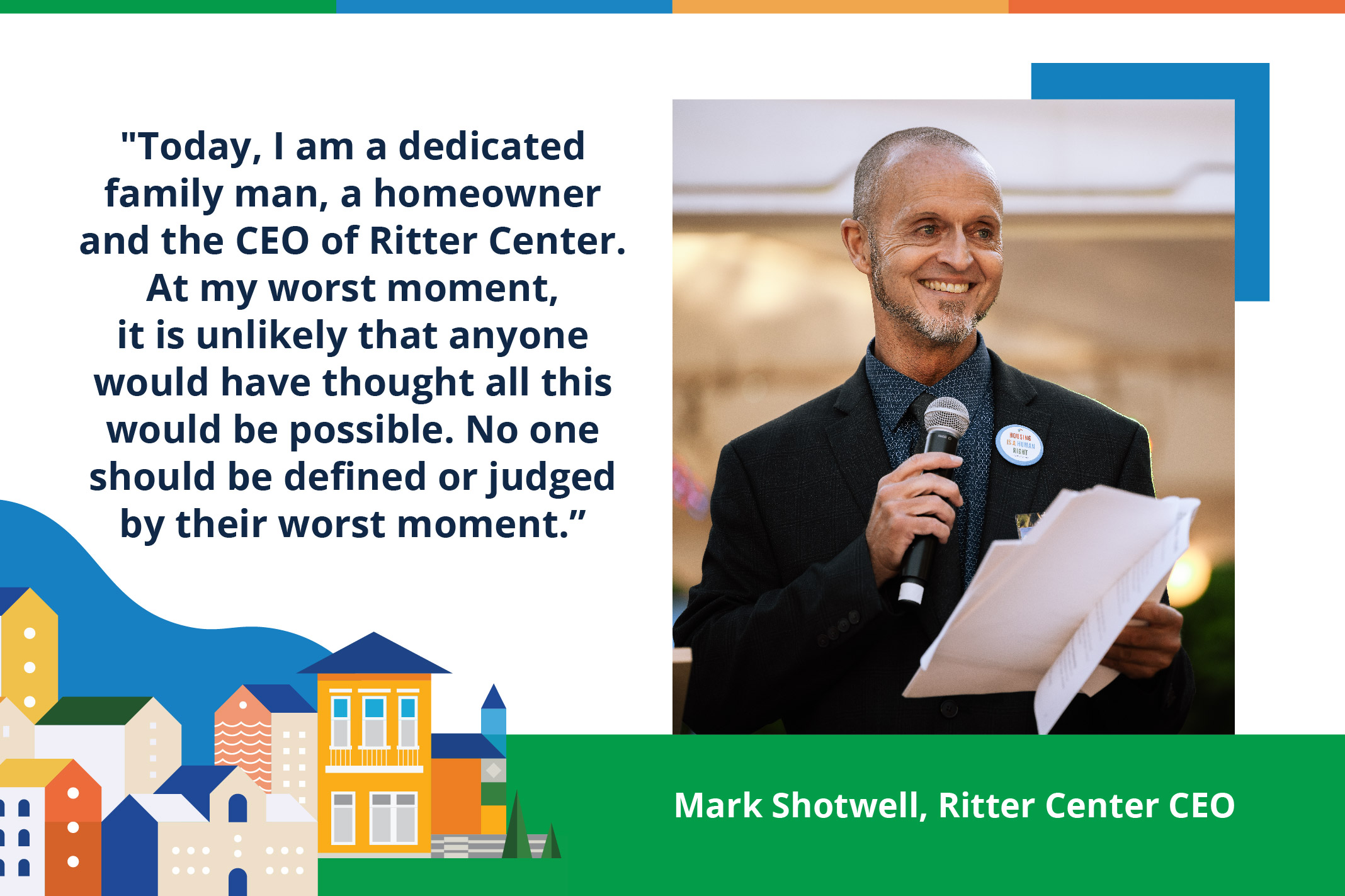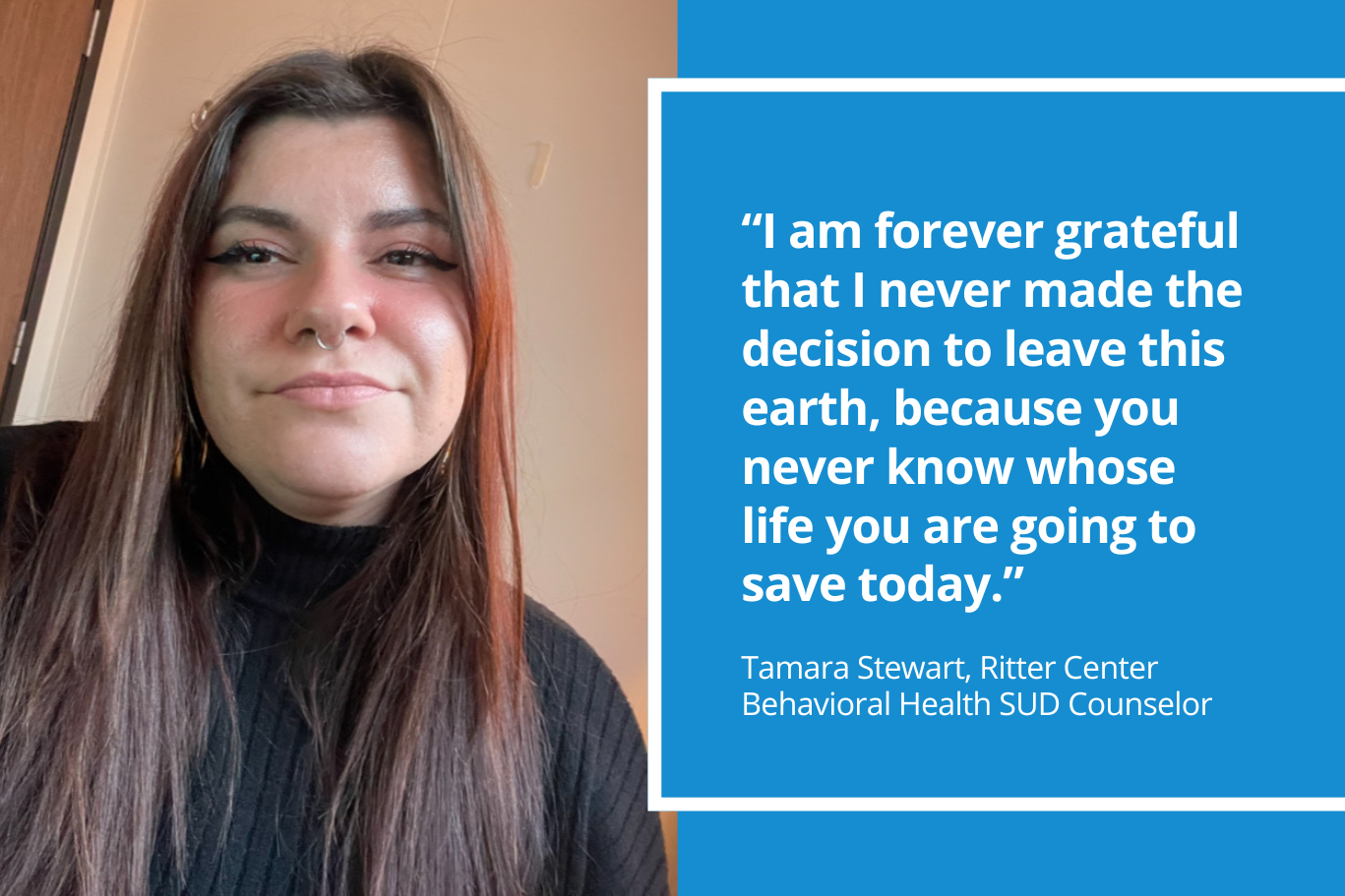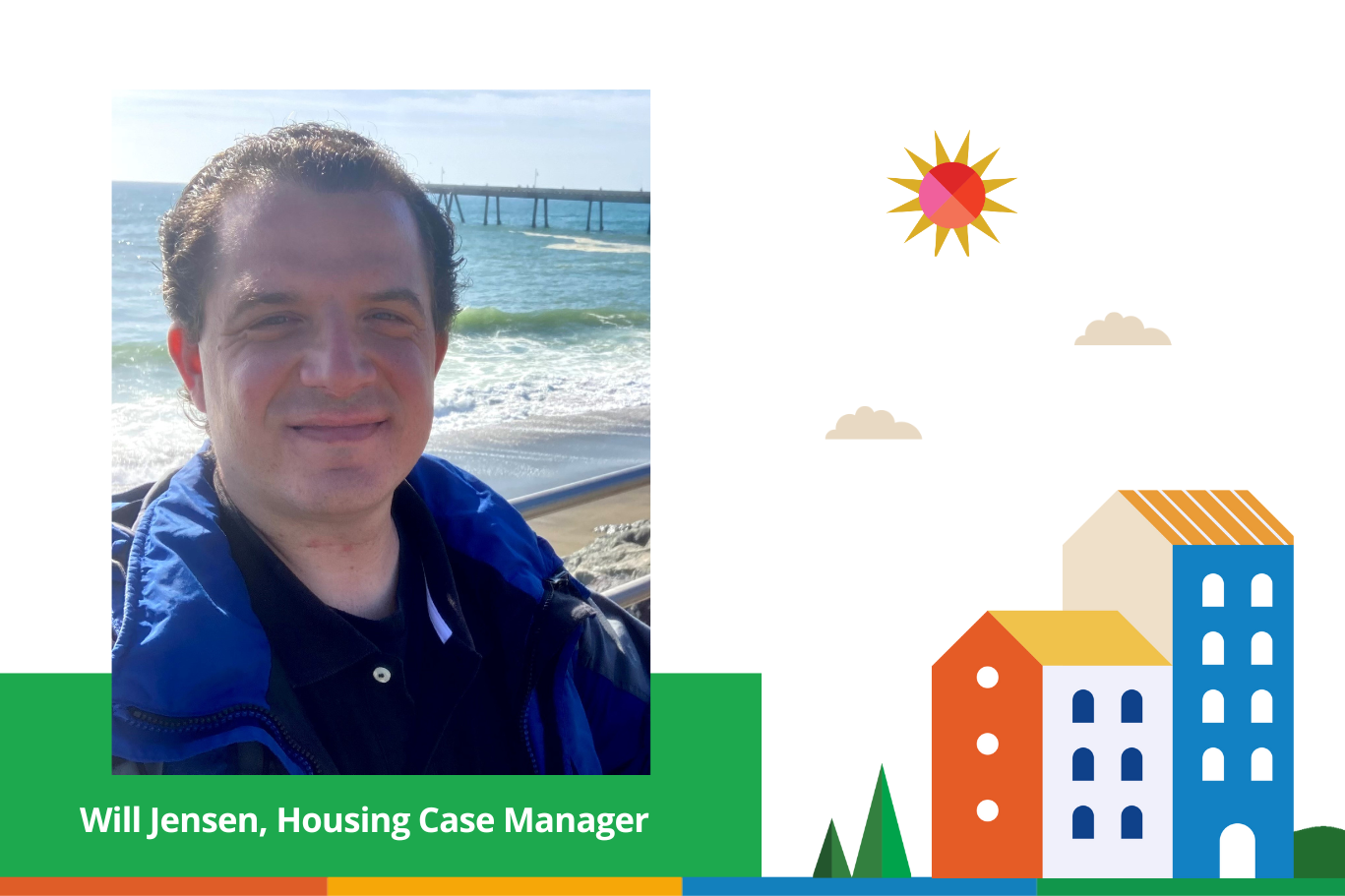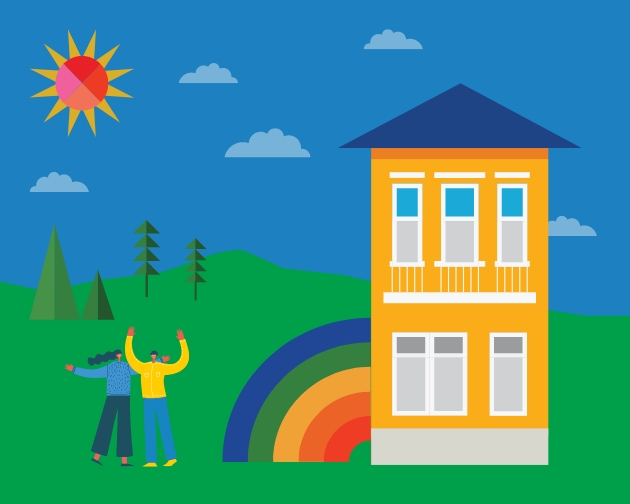
“Let’s help each other find joy when we need it most,” Lucas Garrison, Behavioral Health Therapist
Lucas Garrison is the Mobile Outreach Behavioral Health Therapist at Ritter Center.
“The biggest influence on my life has been my family. I come from a huge family with seven uncles, and I grew up in the same community in Illinois, with three of them on the exact same street as me! Family is a huge aspect of my overall wellbeing. Not only did I have very supportive parents, but I also had four other sets of parents I could go to at any time. We were extremely family oriented. We took vacations together, and I went to school with two cousins. They were also my best friends,” remembered Lucas Garrison, Mobile Outreach Behavioral Health Therapist at Ritter Center.
Lucas played a lot of sports, especially baseball, during his school years. For a while, like many, he had the dream of becoming a professional baseball player.
“I started to explore a variety of options in healthcare. I shadowed occupational therapists and also considered physical therapy. Over time, I started to recognize the impact of mental health on overall wellbeing. Before this point, mental health wasn’t at the forefront of my thoughts or my life. Like anyone else who doesn’t work in the field or hasn’t dived deep into it, it is hard to see the incredible value of it.
What caused the shift for me was meeting a teenager who, at just 16, had been shot in the head. This caused cognitive impairment that led to depression. Here was this big, strong guy that was so fragile. Nobody would ever assume this athletic guy is really suffering underneath. This was the spark of my interest in mental health,” said Lucas.
Lucas’s father was a chiropractor in Illinois who often gave back by providing free chiropractic care to people living in the local homeless shelter. He would bring his chiropractic table, and patients would line up to get their backs and necks adjusted.
“I saw my dad in this incredible position of doing something he didn’t have to do but wanted to do. There was a deep mutual respect between my dad and the community of people living in the shelter. They knew each other by name. What was particularly striking was that there was no separation between my dad as the chiropractor and those who were unhoused. It changed my perspective forever,” said Lucas.
At the start of his career, Lucas became a residential counselor in a home of 10 adolescent boys. This home served a developmentally disabled population, and these teenagers had academic and cognitive challenges coupled with the hormonal changes of puberty.
Lucas recalls that he learned a lot there about not just what to do but also what not to do and what doesn’t work well. He worked there during his master’s program to become a social worker. Then he moved to California and worked as a case manager in downtown Oakland. He started learning even more about substance use, alcohol, homelessness, and the history of trauma, along with the role it can play in lives.
He also worked at a school doing psychotherapy with children for about three years in Pittsburg, CA. This job enabled him to see the many ways one can give overall support to children. They took trips within the community to the beach or camping.
“This job made me realize that families without extra income lack life experiences, including even going to the beach. These kids had never seen the ocean but were growing up only 45 minutes away from the coast. This painted a fuller picture for me of how growing up can affect what you experience in terms of how you are as a child and how you navigate the way through school and into adulthood. I now have a better understanding of how life impacts people and how they became what they are today. Now I can pause and ask myself this question: what was their childhood like? What was their home and their parents like? I can make more sense of it now,” recalled Lucas.
Lucas gained a lot of insights in all of these positions. He obtained his license to practice therapy and returned to treating adults. He felt he could have the most impact in serving people by leveraging his strengths to build trusting relationships with people.
“I invest in that fully, and forging trust means that people want to come back and work with me. If I can get them to come back that second time for therapy, I can plan something for the third time that they will want to come back to do with me. That relationship piece is the biggest part of the work I do at Ritter Center. A lot of times, they aren’t expecting a connection due to their past experiences and history with other organizations or professionals. I let them know that we are going through this together. It is a partnership. They may have been let down in the past. Their trust may have been broken. Perhaps they were abandoned or neglected, but we can work together now, and I will be there,” described Lucas with passion.
Lucas has been working with a client for a couple of months who struggles with severe anxiety to the point where this client had to spend most of the day preparing for the session with him. The effort to go to therapy requires a lot of this person to overcome. It is understandably a struggle to leave the house, be in public and go to Ritter Center.
This client used to need to bring their partner to sit outside by the door during the session. But now they are able to come independently.
“Every time we meet, they say they feel so much better now. A lot of progress has been made. This is a huge win,” describes Lucas.
He also works on the street medicine van and goes to shelters to establish relationships and start therapy.
“Some of my client referrals actually come from people living in the shelters who have worked with me. They tell me that someone they know living there could use some extra support, too. Of course, the staff refers patients to me as well. But it is this peer referral – as in client to client – that means so much to me. Our clients are learning that therapy doesn’t have to mean sitting in a room talking. It can mean art and music. I am mobile. I can bring activities. We can go on a hike and sit by a stream,” shared Lucas.
“This makes it more appealing and less scary, as well as more accessible. We might walk around the park or paint while we talk. Learning to express themselves and find joy in their life is the key. I might suggest that rather than sitting in the dark depressed, we can find some light through joy. I ask them to identify an idea and then commit to doing it the next time we are together. Finding points of joy and light and making that appointment time disrupts the cycle they are in to make a change. Because transportation and mobility are a huge issue for many of our clients, I can come to them whether that means their home, a shelter, or Ritter Center,” described Lucas.
“After all, everyone will experience anxiety and depression at some point in their lives. It’s not a matter of if – it is a matter of when. We are all in this together, and let’s help each other find joy when we need it most.”

